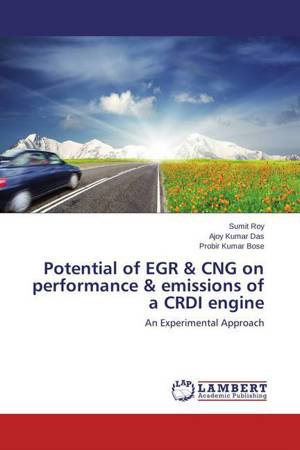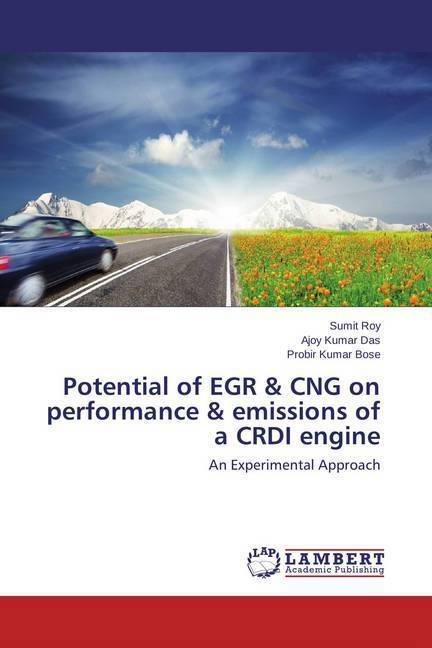
Bedankt voor het vertrouwen het afgelopen jaar! Om jou te bedanken bieden we GRATIS verzending (in België) aan op alles gedurende de hele maand januari.
- Afhalen na 1 uur in een winkel met voorraad
- In januari gratis thuislevering in België
- Ruim aanbod met 7 miljoen producten
Bedankt voor het vertrouwen het afgelopen jaar! Om jou te bedanken bieden we GRATIS verzending (in België) aan op alles gedurende de hele maand januari.
- Afhalen na 1 uur in een winkel met voorraad
- In januari gratis thuislevering in België
- Ruim aanbod met 7 miljoen producten
Zoeken
Potential of EGR & CNG on performance & emissions of a CRDI engine
An Experimental Approach
Sumit Roy, Ajoy Kumar Das, Probir Kumar Bose
Paperback | Engels
€ 53,95
+ 107 punten
Omschrijving
With the evolution of the increasing obligations of meeting and respecting the Emission legislations in the present millennium and towards society at large, diesel engine based technology had undergone a paradigm shift in its perspectives to meet the desired objectives of the necessary emission standards. To this end Common Rail Direct Injection (CRDI) has ushered in a new edge in diesel engine control systems. Where in complete freedom of injection timing, injection pressure and amount of fuel injection can be suitably varied to meet the expected standards of performance and emission. The present work is an exploratory effort to unearth the contingent benefits of such CRDI operation and also to investigate the possibility of using Compressed Natural Gas (CNG) and Exhaust Gas Re-circulation (EGR) technology as viable means in mitigating the pitfalls of the Soot-NOx-BSFC trade-off which has been an omnipresent dilemma in the context of diesel engines.
Specificaties
Betrokkenen
- Auteur(s):
- Uitgeverij:
Inhoud
- Aantal bladzijden:
- 108
- Taal:
- Engels
Eigenschappen
- Productcode (EAN):
- 9783659690020
- Verschijningsdatum:
- 1/04/2015
- Uitvoering:
- Paperback
- Afmetingen:
- 150 mm x 220 mm
- Gewicht:
- 168 g

Alleen bij Standaard Boekhandel
+ 107 punten op je klantenkaart van Standaard Boekhandel
Beoordelingen
We publiceren alleen reviews die voldoen aan de voorwaarden voor reviews. Bekijk onze voorwaarden voor reviews.









